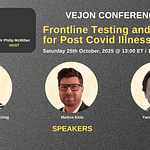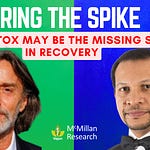When I came across a recent article from Children’s Health Defense titled “OSHA admits it told healthcare employers not to report COVID vaccine injuries,” I paused.
This wasn’t just another headline. It was a piece of history quietly buried in an archive — one that says far more about how the world changed during the pandemic than most care to admit. Before the story disappeared into the background noise, I decided to look more closely.
Understanding OSHA’s Role
The Occupational Safety and Health Administration (OSHA) has, for decades, existed to protect American workers from unsafe conditions.
Their mission is simple but vital — to ensure that every workplace is safe, fair, and free from retaliation. In any country, there’s an equivalent body that enforces those same principles of workplace safety.
So when OSHA made a decision in 2021 that affected every healthcare worker in the United States, it mattered — even to those outside the U.S.
The Policy That Shouldn’t Have Been
In June 2021, buried in their official “Frequently Asked Questions,” OSHA wrote:
“OSHA does not intend to enforce 29 CFR 1904’s recording requirements to require any employers to record worker side effects from COVID-19 vaccination.”
The reason?
“OSHA does not wish to have any appearance of discouraging workers from receiving COVID-19 vaccination, and does not wish to disincentivize employers’ vaccination efforts.”
In other words, if a worker suffered a vaccine-related injury, employers were not required to log it.
Now, OSHA didn’t explicitly forbid reporting — but by removing enforcement, they effectively ensured that most cases would never be recorded.
The Logic — and the Contradiction
The contradiction is stark.
At the same time OSHA was defending vaccine mandates as part of a safe workplace, it was telling employers not to document injuries that arose from those same mandates.
Think about that: a worker could be required to take the vaccine to keep their job, but if they were harmed by it, there was no formal obligation to record that harm. The system designed to protect the employee was now protecting the policy instead.
It’s one thing to support a public health goal — it’s another to remove the mechanisms that hold it accountable.
Why This Matters
In occupational medicine, data collection is everything.
If you stop counting an injury, it stops existing — at least statistically. And without those numbers, there’s no visibility, no investigation, and no justice.
This is how systems fail: not through conspiracy, but through bureaucratic convenience disguised as benevolence.
By “not wishing to discourage vaccination,” OSHA created a blind spot at the very moment accurate data was most needed.
Children’s Health Defense and the Messenger Problem
It’s worth acknowledging that Children’s Health Defense is controversial. Founded by Robert F. Kennedy Jr., it’s often labeled as “anti-vaccine” by mainstream media. But labels aside, in this case, they unearthed something verifiable: an archived federal document stating exactly what OSHA said.
That’s not opinion — that’s fact.
What we do with that fact is the real ethical test. We can dismiss it because of the source, or we can confront what it reveals about how deeply fear and politics shaped the pandemic response.
The Deeper Lesson
When government agencies start deciding which truths are too inconvenient to record, we lose more than data — we lose trust.
OSHA’s decision may have been made with good intentions, but it undermined the very principle it was built on: the duty to protect the worker.
We can’t learn from mistakes we refuse to acknowledge.
And if we erase evidence of harm to protect a narrative, we move from science to faith — and from ethics to ideology.
A Call for Candor
It’s time to restore transparency, wherever the evidence leads.
The lesson here isn’t about vaccines alone — it’s about integrity in governance. Agencies like OSHA, CDC, and FDA hold immense responsibility, and with that comes the obligation to tell the truth, even when it’s uncomfortable.
As I’ve said before, ethics, advocacy, and the duty of candor are not optional — they’re the foundation of medicine and science.
If we lose that, we lose everything.
Vejon COVID-19 Review is a reader-supported publication. To receive new posts and support my work, consider becoming a free or paid subscriber.











